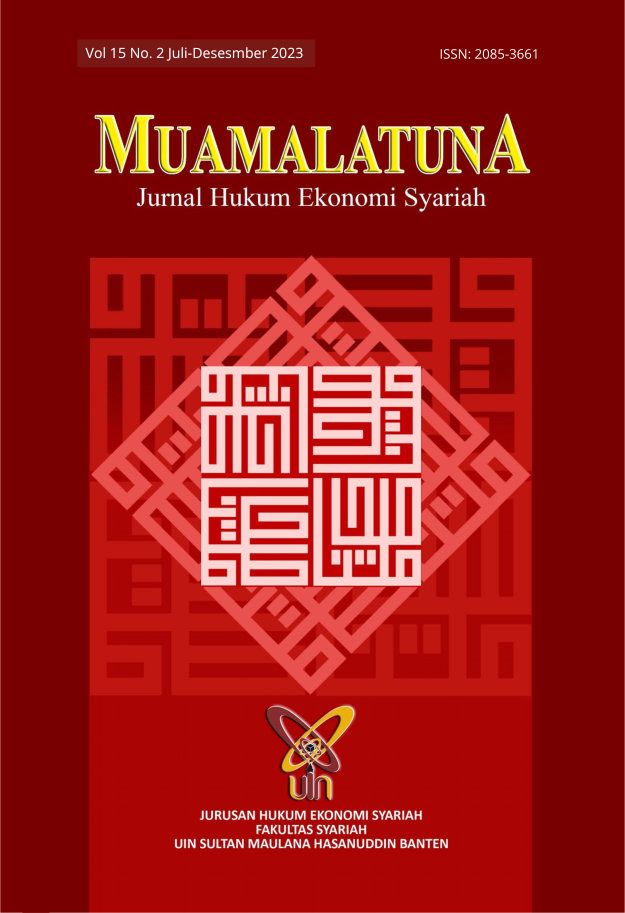The Law Enforcement of Guarantees Halal Products in Indonesia
Main Article Content
Abstract
Law No. 33 of 2014 concerning GUARANTEES Halal Products states that products that enter, circulate, and are traded in the territory of Indonesia must be halal certified, except for products with ingredients that are prohibited. Business actors who do not carry out their obligations in halal certification can be subject to administrative sanctions and criminal sanctions. Based on the provisions above, law enforcement for Halal Product Guarantee must at least look at the factors of legal certainty, enforcement officers, facilities, culture and society. The main problem in this research; First, how is the JPH law enforcement process considering that until now there are still many industrial products that have not carried out halal certification. Second, how are the procedures for applying criminal or administrative sanctions applied to products that violate the provisions of halal certification. This study aims to determine the law enforcement of halal product guarantees in Indonesia in terms of the aspects of legal certainty, justice and benefits for all economic actors in Indonesia. This study uses the method of literature review (library research), namely research based on the opinions of legal experts. The research results conclude that; first, in the process of enforcing the law on halal product guarantees, it refers to other provisions that have been presented by the government, such as PP No. 31 of 2019, PP no. 39 of 2021, Minister of Religion Regulation No. 26 of 2019, Law no. 21 of 2000, Law no. 8 of 1999. As of October 17, 2024, the imposition of sanctions on business actors who do not yet have halal certification has not been enforced, however, products that already have halal certification but commit serious violations by using illegal substances can be subject to criminal provisions since Law Number 33 of 2014 was declared effective (5 Years after stipulation). Second, criminal provisions for violations of halal-certified products can refer to Article 4a, Article 7, Article 8f, and Article 62 paragraph (1) of the Consumer Protection Law. Settlement of the criminal case also refers to the provisions of the criminal procedural law which are the territory of the general court
Downloads
Article Details

This work is licensed under a Creative Commons Attribution-NonCommercial-ShareAlike 4.0 International License.
This is an open-access article distributed under the terms of the Creative Commons Attribution-NonCommercial-ShareAlike 4.0 International License (http://creativecommons.org/licenses/by-nc-sa/4.0/) which permits unrestricted non-commercial used, distribution and reproduction in any medium 
This work is licensed under a Creative Commons Attribution-NonCommercial-ShareAlike 4.0 International License.
References
Undang-Undang Dasar Negara Republik Indonesia Tahun 1945.
Undang-Undang Nomor 18 Tahun 2012 tentang Pangan (Lembaran Negara Nomor 227, Tambahan Lembaran Negara Nomor 5360).
Undang-Undang Nomor 8 Tahun 1999 Tentang Perlindungan Konsumen (Lembaran Negara Nomor 42, Tambahan Lembaran Negara Nomor 3821).
Undang-Undang Nomor 33 Tahun 2014 Tentang Jamina Produk Halal (Lembaran Negara Tahun 2014 Nomor 295).
MD, Moh. Mahfud, Politik Hukum di Indonesia, LP3ES, Jakarta, 1998.
Mashudi, Konstruksi Hukum dan Respon Masyarakat Terhadap Sertifikasi Produk Halal, Universitas Diponegoro, Semarang, 2011.
Muhammad Abduh, Implementasi Jaminan Produk Halal Bagi Pelaku Usaha Mikro, JCIC - Jurnal CIC Lembaga Riset dan Konsultan Sosial, Vol 3. No. 1. 2021 Hal. 45-52
Kitab Undang-Undang Hukum Pidana;
Undang-Undang Nomor 11 tahun 2020 tentang Cipta Kerja.
Yazid Abu Fida, Ensiklopedi Halal Haram Makanan, Pustaka Arafah, Solo, 2014.
Sofyan Hasan, Sertifikasi Halal Dalam Hukum Positif , Regulasi dan Implementasi di Indonesia, Aswaja Pressindo, Yogyakarta, 2014.
Jonaedi Effendi, & Johnny Ibrahim. (2018). Metode Penelitian Hukum Normatif dan Empiris. Kencana
Friedman Lawrence M, Law and Society An Introduction, Prentice Hall Inc, New Jersey, 1977.
Keputusan Kepala BPJPH No. 141 Tahun 2021 tentang Penetapan Tarif Layanan BLU BPJPH dan Peraturan BPJPH No.1 Tahun 2021 tentang Tata Cara Pembayaran Tarif Layanan BLU BPJPH.
Marwan Mas, Pengantar Ilmu Hukum, Ghalia Indonesia, Bogor, 2003.

